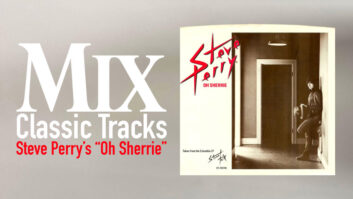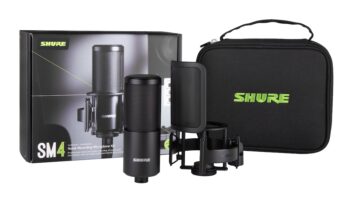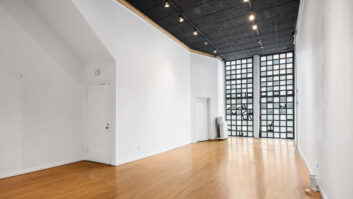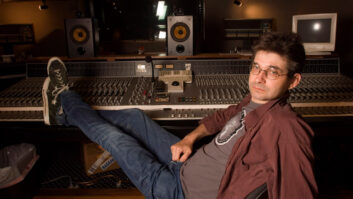To Chicagoans, Steve Dahl is a classic radio personality. An irreverant guy in a Hawaiian shirt who makes a living poking fun at things on-air. The perpetrator of the infamous 1979 “Disco Demolition,” a conflagration of disco records that lost the White Sox a game by scorching the field at Comiskey Park. One of radio’s original “shock jocks.”
More than just a radio prankster, Dahl has always peppered his schtick with his own music. He creates parodies of popular songs and writes original material, all of which he broadcasts on his daily show and performs with his band for live audiences. To support his own creations, he has assembled a project studio in his suburban basement, linking music-production tools with the broadcast world.
Back in the ’70s, Dahl’s musical ventures consisted mainly of mocking popular songs to spice up his radio show. For concocting classics such as “Do You Think I’m Disco,” his only tools were a cassette player and a legal pad. He would play back the original song and work out his own tongue-in-cheek lyrics on paper. His producer took care of the rest, re-recording the songs in some local recording studio. Now, Dahl can produce complete, finished recordings in his own home.
After starting with an entry-level Pro Tools system, Dahl upgraded to Pro Tools/16 for more DSP power. New songs begin with riffs he’s worked out on guitar. He then sits down at his Korg i4S workstation, lays down a basic track and builds from there. Rhythm and additional synth tracks come from a Yamaha MU90R tone generator, guitar tracks get recorded direct and enhanced with the Line 6 Amp Farm or Pod, and finally he’ll lay down vocals. His Mackie Human User Interface helps with the mixdown.
Somewhere along the line, Dahl got tired of only doing parodies of other people’s songs and started working on his own material. Much of his work is still comedic in its subject matter, although he has done some “serious” songs, including his recent collaboration with Brian Wilson; he contributed lyrics to “Your Imagination” on Wilson’s latest album, Imagination. Dahl’s Pro Tools system made cowriting easier, because he could fly in a rough mix and record vocal tracks, adding and editing until the lyrics worked just right.
For Dahl, whose main vehicle is the airwaves, perhaps the most important aspect of his studio is that it connects him directly to Chicago’s WCKG-FM, which broadcasts his show every afternoon. He transfers his music beds or songs via ISDN directly to the station, where he can tweak them upon arrival downtown. “If there’s something I want to get done in the morning, but I don’t want to go in there three hours early, I can just do it [at home], and it sounds perfect.”
He often puts together his own music beds using Sonic Foundry Acid, which he carries with him on his laptop. What he doesn’t get done at home before going to work he can do on-the-fly during his show. “I can literally make a bed for something during a break,” says Dahl, “and that’s kinda cool.”
Dahl can even host his radio show from home, although he doesn’t do so too often. “I like to get out of the house,” he says, “and my family doesn’t think I have a real job anyway, so when I just sit there in the basement doing it, they really think it’s not a real job.”
The Steve Dahl Show also Web-casts straight from Dahl’s basement, launched through his Web site. Dahl plans to cater to the online audience with his current project, “basement tapes” of previously unrecorded songs that he’s been playing live, which will be available at www.dahl.com as MP3s.
Having begun his career as an audio engineer, Dahl’s paid his dues editing the old-fashioned way. He was thrilled when he got his first taste of editing sans razor blade and has gone on to do things he never would have dreamed up in the analog days. “I suppose I could get by without it, but I enjoy having the technology available,” he says.







